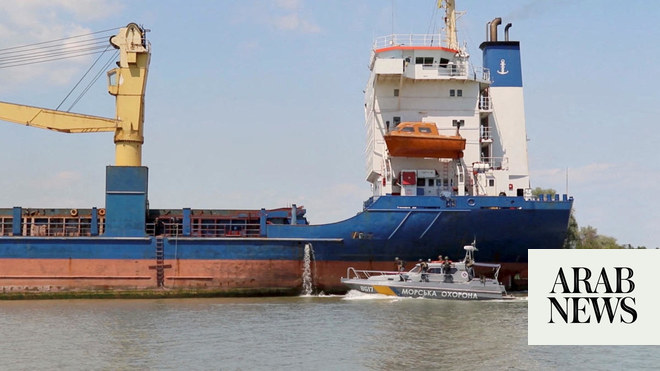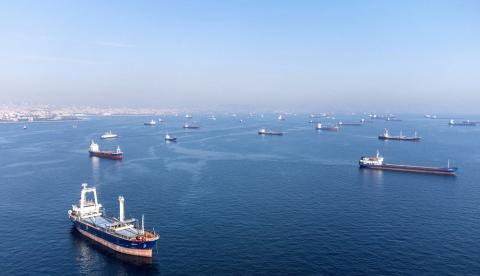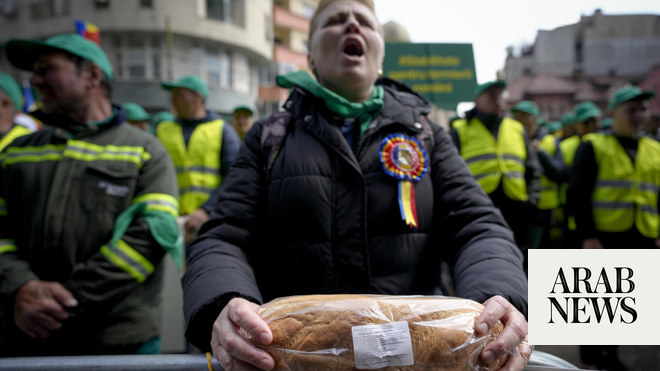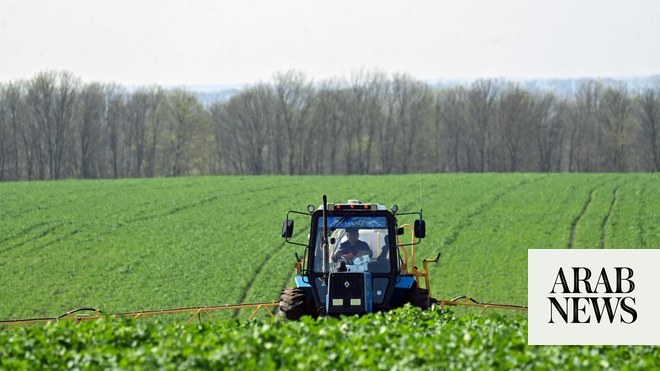
BRUSSELS: The EU agriculture commissioner said Tuesday the bloc can help Ukraine export the bulk of its grain through overland routes and could subsidise the cost of transport, after Russia tore up a Black Sea deal.
Fears over getting Ukraine’s vitally needed supplies to consumers worldwide have spiked since Russia last week withdrew from the United Nations-brokered agreement to allow exports by sea.
The EU set up so-called “solidarity lanes” last year for Ukrainian produce — mainly through Romania and Poland — to help boost alternative routes to global markets after Moscow’s invasion.
Commissioner Janusz Wojciechowski said after talks with EU agriculture ministers in Brussels that the bloc was “ready to export by the solidarity lanes almost everything.”
Wojciechowski said he would put now forward a proposal to use EU funds to “support the transport costs” of moving the Ukrainian produce via rail and road through the bloc to keep prices down.
“Because there is a risk that Russia will be the beneficiary of the situation because it would be cheaper to buy grain from Russia than to pay for the grain from Ukraine,” he said.
Ukraine is a major global grain producer.
Russia’s decision to pull out of the Black Sea deal has fueled worries that food prices in countries from Latin America to Africa could surge.
The efforts to bolster exports through the EU are being clouded by an argument over restrictions in five eastern on sales of Ukrainian grain exports in five eastern European countries that have enraged Kyiv.
The 27-nation bloc dropped duties on Ukrainian exports in the wake of Russia’s all-out invasion in a bid to help Kyiv earn vital revenues.
But EU countries along the border of the global agricultural powerhouse started barring imports after their farmers protested that a glut of Ukrainian grain was pushing down prices.
Brussels struck a compromise in April that allowed Bulgaria, Hungary, Poland, Romania and Slovakia to prohibit sales on their local markets while keeping transit routes open for Ukrainian grain to cross their territories.
The measures are currently set to run out in mid-September, but the five countries have called for them to be prolonged to the end of the year.
Ukraine’s President Volodymyr Zelensky on Monday branded any extension “absolutely unacceptable and frankly anti-European.”
His broadside came as focus has settled on securing routes for Ukraine to export grain to global markets after Russia withdrew from a deal to send it via the Black Sea.
Kyiv’s opposition was echoed by EU countries including Germany and France at the meeting of the bloc’s agricultural ministers in Brussels on Tuesday.
German agriculture minister Cem Ozdemir said the European Commission, the EU’s executive arm, needed to make clear any extension was “not possible.”
He insisted that Poland’s internal political disputes ahead of elections later this year should not be played out “on Ukraine’s back.”
France’s minister, Marc Fesneau, said “there can be no unilateral measures, no individual adventures, only a collective response to the challenge of destabilising the markets.”
Wojciechowski held talks with ministers from the five eastern EU member states and said the commission would come up with a response to the issue by the September cut-off point.
EU nation Lithuania has urged the EU to set up new export routes through Baltic ports for Ukrainian grain to provide more links to global markets.












